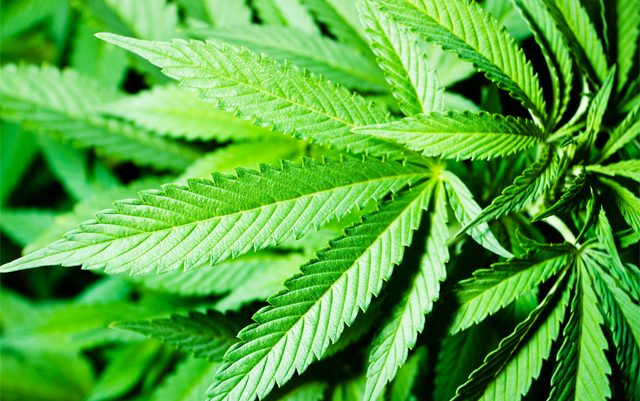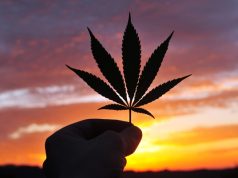Post-traumatic stress disorder (PTSD) is a psychiatric disorder that occurs when an individual is exposed to one or more traumatic events such as sexual assault, combat, etc. PTSD is sometimes accompanied by other psychiatric disorders, such as obsessive compulsive disorder. PTSD patients suffer hyperarousal with insomnia, social isolation, negative flashbacks, avoidance and anxiety. Chronic, untreated PTSD leads to disrupted brain chemical turnover and the patient becomes hyper-responsive to stressors. PTSD patients may exhibit dissociative behaviors or arousal, emotional or dysphoric symptoms, or a combination.
PTSD affects approximately 8 million Americans per year and is particularly prevalent among war veterans and low-income individuals.
Currently, no effective, approved or specialized treatments are available for PTSD patients, and instead they are being treated with conventional psychiatric drugs. Recently, clinicians have slowly begun to realize the ill-effects of these drugs and also looking into research studies on how cannabis might help PTSD.
The Neurobiology of PTSD
The dysfunctional neurobiology of PTSD encompasses neurotransmitters’ imbalance, including noradrenergic and serotonergic mechanisms in addition to neuroanatomical disruptions. These pathobiological events contribute to dysregulation of the endocrine, cardiovascular, immune and autonomic nervous systems – which collectively leads to PTSD. Due to the involvement of multiple factors, PTSD patients present with a broad range of symptoms that further complicate the treatment approach.
Neuroimaging studies have elucidated the key role of the endocannabinoid system (ECS) in the management of central neurobiological pathways. For example, CB1 receptors are upregulated and low CB1 receptor occupancy by anandamide is common in the amygdala-hippocampal-cortico-striatal neural circuits of PTSD patients. These events contribute to dysregulation of threat-related processing in response to previous traumatic exposure, resulting in a cascade of neurological changes and amygdala hyperresponsivity. These anomalies are responsible for increased vigilance or attention to trauma-related stimulation and hyperarousal, which are common in individuals with PTSD.
Exposure to stress events triggers certain neurons in the hypothalamic paraventricular nucleus and also the release of the adrenocorticotrophic hormone (ACTH), and the latter stimulates the release of stress-causing corticosteroids (glucocorticoids). These hypothalamic-pituitary-adrenal (HPA) axis abnormalities deleteriously affect the brain and immune functions, as well as the brain’s ability to manage the stressors. Persistent release of corticosteroids leads to impaired hippocampal neurogenesis, reduced dendritic branching, behavioral problems, and addictive and memory disorders. Endogenous ECS signaling is critical for stress adaptation and intrinsic regulation of HPA axis.
Endocannabinoids and PTSD: Connecting the Dots
Physiologically, the endocannabinoid system plays a vital role in the function of the prefrontal cortex, which is involved in information processing, the subcortical arousal system and regulation of cholinergic inputs. The ECS may also be involved in the disruption of conditioned fear and facilitating adaptation to aversive situations. Modulation of hippocampal memory and plasticity via the ECS could be the best therapeutic option to treat PTSD.
Dysfunctional ECS architecture has been reported in depressive disorder patients with characteristic changes in CB1 receptors and its ligands.
Altered ECS signaling negatively affects the functions of the HPA axis. Although short-term HPA axis activation is beneficial to cope with stressors, persistent or long-term activation may lead to neuropsychiatric disorders with negative effects on metabolism, mood and cognition. Activation of cannabinoid receptors in the prefrontal complex could augment serotonergic neurotransmission and elicit antidepressant effects. Regulation of HPA output might be achieved by retrograde ECS signaling in the hypothalamus, and administration of cannabinoid ligands, such as phytocannabinoids, could activate the HPA axis indirectly by stimulating the noradrenergic and serotonergic neurotransmission. Phytocannabinoids act on both limbic and paralimbic centers, and reduce the activity of the hypothalamus and amygdala.
Higher rates of suicidal behavior have been reported in PTSD patients, which could be due to negative mood and anxiety. Researchers believe that altered G-protein signaling (CB1 receptor mediated) in the prefrontal cortex may contribute to the suicidal thoughts or behaviors.
We know that medical cannabis has antidepressant-like properties which may be useful for treating mood disorders, suicidal behaviors and PTSD. According to one report, reduction in frequency, severity of, and even complete cessation of suicidal behaviors were observed in most of the patients in New Mexico’s Medical Cannabis Program for PTSD.
It is clear that the activation of the ECS contributes to the disruption of aversive memories, anxiety, and improves stress-coping behaviors and reactivity to threat signals. In this way, cannabinoids might help PTSD patients to effectively manage their symptoms, and also to prevent the relapse of symptoms, after exposure to a stressor or stressful event.
PTSD War Veterans
It’s no secret that many veterans return from war with PTSD, and many of them self-medicate with cannabis. Those who have a hard time getting access to cannabis may turn to alcohol and other illicit substances, despite knowing about their harmful effects. Unfortunately, the reality is that current rules governing Veterans Affairs stop doctors from prescribing medical cannabis to PTSD veterans.
If we look closely into the motives of cannabis use by PTSD vets in an unbiased manner, we can see the coping-oriented cannabis use to (self) treat fears, poor sleep quality, negative associative memories, emotions and anxieties.
Yes, cannabis does help to relieve depression and facilitate sleep onset in short-term users, but long-term abusers may suffer sleep disturbances. In low doses, cannabinoids could elicit anxiolytic effects through their effects on hippocampal memory and plasticity.
How Does Weed Help PTSD?
Research evidence points out the inverse relationship between the lower levels of anandamide and occurrence of PTSD. In normal humans, the endocannabinoid (anandamide) activates the same receptors that are activated by phytocannabinoids. The underlying cause of PTSD is an endocannabinoid deficiency, in which the body lacks production of adequate levels of endocannabinoids to activate innate receptors that are associated with the regulation of mood perceptions, flashback memories, behaviors, metabolism and digestion. In such cases, medical cannabis comes into the play, binds with respective receptors and relieves the PTSD symptoms.
If we have normal CB1 receptor signaling, our brain has the ability to fade away all our traumatic memories, which we can consider as ‘gifted’ and beneficial forgetting. If we suffer impaired CB1 signaling or endocannabinoid deficiency, we are more prone to impaired fear extinction, negative or aversive and repetitive flashback memories with chronic anxiety, which are the cardinal features of PTSD. In response to, or to compensate for, the endocannabinoid deficiency, the body produces more endocannabinoid receptors, which actually have no agonists to bind with.
According to a Brazilian study, THC is more potent than CBD in attenuating fear memories. In combination, THC and CBD could potentially relieve PTSD symptoms with minimal – but very tolerable – side effects.
Emerging evidence has pointed out that CBD has the potential to treat neuropsychiatric disorders by interacting with serotonergic receptors and dopaminergic systems. A pre-clinical study found that cannabis treats these problems by influencing the nucleus accumbens VTA circuit of the mesolimbic system, which is responsible for positive neuronal and behavioral effects and also for the disruption of formation of negative associative memories. CBD achieve this via functional interaction with 5-HT1A receptor signaling mechanisms. However, the exact mechanism of emotional processing modulation is still unknown.
In an experimental induced-fear test, in which animals were previously exposed to painful sensation and potential electric shock, CBD-treated laboratory animals exhibited less stress when they were nearing the electric maze. This study demonstrated the fearful sensation alleviating benefit of CBD, which could be helpful in treating PTSD veterans who are exposed to life-threatening situations in battles.
Studies have suggested that THC-mediated activation of CB1 receptors present in the medial prefrontal cortex could lead to memory reactivation or retrieval. However, CBD could counter this effect as well as other negative psychotropic effects of THC, and help to effectively manage PTSD symptoms. Even in sub-effective doses, a combination of THC and CBD could mitigate dysfunctional aversive and fear memories, locomotor activity and anxiety-related behaviors.
Phytocannabinoids are also helpful for treating alcoholism, which is highly common in PTSD patients. A patient survey study found that PTSD patients prefer cannabis over alcohol and other illicit substances because the side effects are minimal and temporary.
Medical cannabis use tends to reduce aggressive behaviors, which is also common in PTSD patients. Additionally, these patients report significant reductions in anger and irritability. Cannabis strains containing both THC and CBD in equal ratios may prevent psychotic-like behaviors.
Conclusion
Even with co-occurring psychiatric illnesses, cannabis treats PTSD by influencing the neurobiological pathways and modulating the neurotransmitters, bringing these anomalies back to normalcy. Due to Schedule I classification and legal barriers in conducting controlled clinical trials, treatment safety information is still lacking.
It could be a decade or more before we see the FDA’s approval of cannabis-based drugs for the treatment of PTSD. With the mounting evidence, psychiatrists and clinicians should recommend this simple solution for PTSD management, at least in states where marijuana is currently legal.
This article is made available for educational purposes only as well as to give you general information, not to provide medical advice.







What is a Long term abuser doing in article when it is how it helps.
From scientific viewpoint, long-term cannabis use for any purpose other than medical use, is an abuse. As a self-medication approach, some Vets are trying to keep themselves ‘high’ all day to relieve PTSD. Actually, this results in more harm than benefits.
Thank You for clarity. Totally agree on self-medication as well. Vets have been let down on the issue of Medical Cannabis treatments,so they do what Vets do, solve the problem the best they can. Sad to say.
So, I am still not sure of sleep disturbance issues with long term abusers right after depression which is medical is mentioned . The study is not conclusive because research still needs to be done. No doubt, you realize I need guidance .